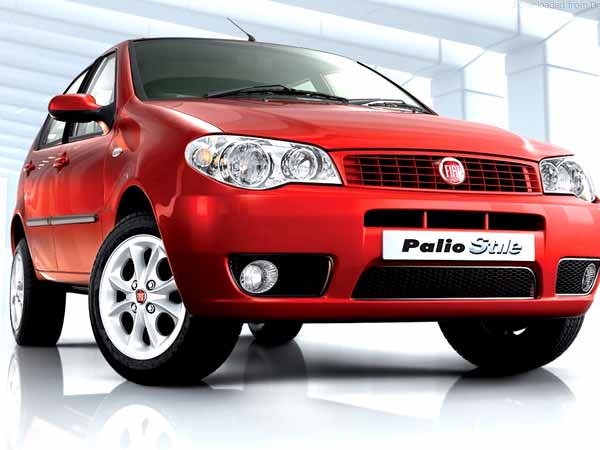|
|
|---|
Monday, October 27, 2008
 Following the X-Bow's market launch this summer and its race debut at the European GT4 Sports Light series where it claimed the top three spots at the end of the 18-round championship, KTM announced the release of a the X-Bow Race, a fully FIA homologated GT4 Sports Light racing car. Drawing on experience from the X-Bow's first season of professional motorsport in Europe, the new Race model features more than 30 modified or new components compared with the standard, road-legal version of the mid-engined sports car. -Continued
Following the X-Bow's market launch this summer and its race debut at the European GT4 Sports Light series where it claimed the top three spots at the end of the 18-round championship, KTM announced the release of a the X-Bow Race, a fully FIA homologated GT4 Sports Light racing car. Drawing on experience from the X-Bow's first season of professional motorsport in Europe, the new Race model features more than 30 modified or new components compared with the standard, road-legal version of the mid-engined sports car. -Continued
 The Austrian firm has priced the X-Bow Race at €82.900 ($105,000 with the current exchange rates) ex-works and excluding national taxes, with first customer deliveries scheduled to begin in January 2009.
The Austrian firm has priced the X-Bow Race at €82.900 ($105,000 with the current exchange rates) ex-works and excluding national taxes, with first customer deliveries scheduled to begin in January 2009.
Changes on the X-Bow Race model, which like its street-legal sibling is powered by Audi's 2.0-liter TFSI engine delivering an output of 240HP, include race-spec suspension and brake systems, Kevlar-reinforced side panels, carbon fiber windscreen extension for telemetry equipment installation, racing fuel system with quick-fill compatibility and an extended rear bumper that prevents tangling and minimizes spray in wet track conditions. Customers with a bigger allowance may also choose from a variety of optional "PowerParts" like such as the carbon-fiber tonneau cover and Kevlar-strengthened front panels.
 The mid-engined sports car can accelerate from 0 to 100 km/h (62 mph) in 3.9 seconds and to 160 km/h (100 mph) in 8.5 sec while its top speed is 220 km/h or 137 mph
The mid-engined sports car can accelerate from 0 to 100 km/h (62 mph) in 3.9 seconds and to 160 km/h (100 mph) in 8.5 sec while its top speed is 220 km/h or 137 mph
The Austrian manufacturer says that the X-Bow 'Race' is extremely easy to maintain and offers significantly lower running costs than competitor cars. To put that in numbers, KTM claims that taking into account all 'wear and tear' parts, tires and fuel, the typical cost of running a X-Bow in GT4 come to about €3,000 (about $3,800) per race.


 X-Bow 'Race' – changes at a glance:
X-Bow 'Race' – changes at a glance:
1 Racing dampers
2 Racing brake pads
3 Racing catalytic converter
4 Semi-slick racing tyres (specified for GT4 EC racing)
5 Six-point racing harness
6 Extended side headrest: for greater driver head support
7 Kevlar-reinforced side panels
8 Carbon fibre windscreen extension: for telemetry equipment installation
9 Installation of front roll blocks (specified for GT4 EC racing)
10 Toughened rear roll hoops
11 Racing airbox design: lower than standard car design, for reduced drag
12 Extended rear bumper: to prevent tangling and minimise spray in wet track conditions
13 Side anti-tangle panel: to prevent inter-wheel tangling
14 Larger towing eye set
15 Fuel-spill seal: to prevent spilt fuel leaking onto engine with quick-fill system
16 Ballast installation plate (specified for GT4 EC racing)
17 Locked steering wheel (adjustable pre-race) in place of quick-adjustable system on standard car
18 Fire extinguisher system
19 Engine kill switch
20 Dry battery
21 Rain safety tail light
22 Revised rear bumper and rear crash box
23 Plastic headlight covers
24 Racing fuel system with quick-fill compatibility
25 Adjustable brake balance
26 Low profile racing windscreen
27 Handbrake removed
28 Front fins removed
29 Numberplate holder removed
30 Visible unpainted carbon body as standard
The KTM X-Bow 'Race' is also available with a variety of optional "PowerParts":
1 Central locking wheels
2 Racing brake discs
3 Adjustable front anti-roll bar
4 Adjustable rear anti-roll bar
5 Adjustable front push rods
6 Airjack system (1x front, 2x rear) – parts
7 Airjack system – fitted
8 Easy-rescue driver seat shell
9 Racing mirrors with indicators or position lights
10 Kevlar-strengthened front panels
11 Carbon-fibre tonneau cover
12 2D data logging system with software
13 Display holder for 2D data logging system
14 Carbon revised rear bumper and rear crash box
15 Wider throttle pedal plate
Safety FIA homologated Article 258A of Appendix J Crash box: FIA Formula 3 crash test approved Kevlar side intrusion protection panels Extended side headrest Fire extinguisher system Dry battery with master switch Front and rear towing eyes Extended rear bumper including rear crash structure














